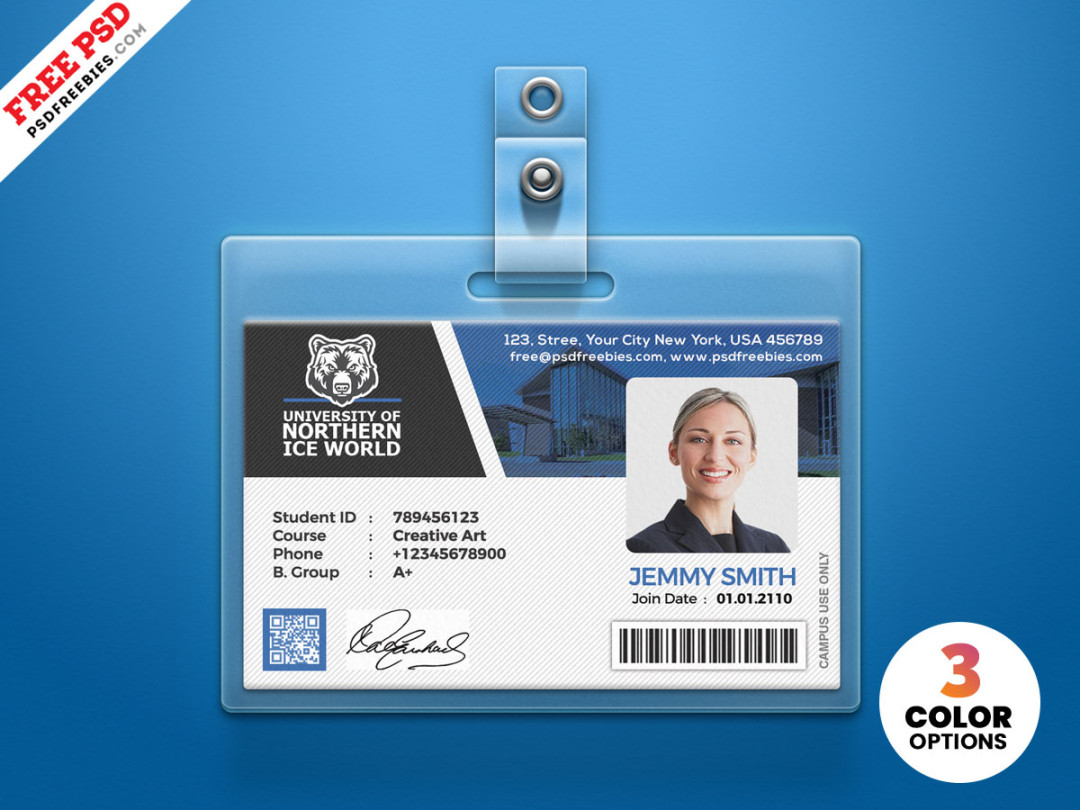Understanding the Core Elements
A well-designed college ID Card serves as more than just a simple identification tool. It’s a visual representation of the institution, reflecting its values, culture, and commitment to its students. Therefore, creating a professional college ID card template requires a careful consideration of various design elements that convey trust, professionalism, and a sense of belonging.

Layout and Structure:
Clear and concise layout: The card should be easy to read and navigate, with information organized in a logical and visually appealing manner. Avoid clutter and excessive text.
Typography:
Readable fonts: Choose fonts that are easy to read, even at small sizes. Sans-serif fonts like Arial, Helvetica, or Roboto are often good choices for ID cards.
Colors:
Institutional colors: Incorporate the college’s official colors to create a strong brand identity.
Imagery:
Institutional logo: prominently display the college’s logo to reinforce brand recognition.
Personal Information:
Essential details: Include the student’s name, student ID number, photograph, and expiration date.
Additional Features:
Magnetic stripe or barcode: Include a magnetic stripe or barcode for access control purposes.
Design Considerations for Trust and Professionalism:
Minimalist design: A clean and uncluttered design can convey a sense of professionalism and trustworthiness.
By carefully considering these design elements, you can create a college ID card template that is both visually appealing and functionally effective. A well-designed ID card can enhance the student experience, strengthen the institution’s brand, and foster a sense of community.